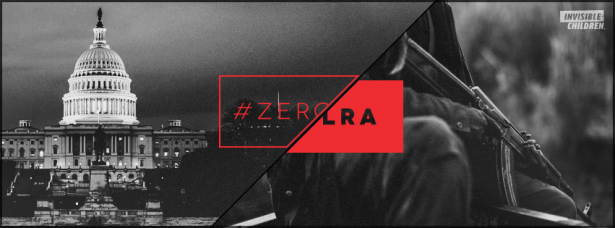
This week we’re launching an urgent advocacy campaign aimed at Members of the United States House of Representatives and U.S. President Barack Obama. After hearing word that the U.S. led counter-LRA operations were once again in jeopardy, we had no other choice but to act. We’ve come so far and to give up now, when we are so close to seeing a permanent end to LRA violence would be irresponsible and counterintuitive. During the next 14 days we’re asking Representatives to sign onto a letter encouraging the Obama Administration to remained committed to seeing zero combatants, zero abducted children, zero LRA.
Much of the campaign focuses on U.S. based advocacy, but don’t worry, we haven’t forgotten about our incredible non-U.S. supporters. We know the power of a global community standing up against injustice, and we’ve seen the impact of the collective voice countless times. We need you to act, and act frequently throughout the duration of this campaign. We can’t do it without you.
We need you to tweet and call your head of state everyday and ask them to commit new funds to the UN Regional Strategy on the LRA. Everything you’ll need can be found here.
The following is a post from our partners at Resolve LRA Crisis Initiative, that originally appeared on May 20, 2013. It explains in more depth why United Nations has not been able to deliver on their strategy.
– Danny
Why can’t the UN get funding for its LRA strategy
By Paul Ronan
In June 2012, to great fanfare, the UN Secretary General released a UN regional strategy on the LRA. The strategy was designed to help coordinate and improve the counter-LRA efforts of the alphabet soup of UN agencies, peacekeeping missions, and senior officials working on the crisis. For donors and civil society groups, one particular hope was that the UN would create a list of “priority projects” whose implementation could help fill critical gaps in the field.
Unfortunately, that hope has been stuck in a bureaucratic purgatory ever sense. UN officials circulated the first drafts of the priority projects in mid-2012, but disappointed many with their lack of detail. Progress in developing the list was so slow that in December 2012 the UN Security Council formally requested the Secretary General to submit a list of priority projects as part of a broader implementation plan for the strategy.
Unfortunately, the list of 17 priority projects submitted to the Council by the Secretary General in April 2013 was little better than the initial drafts. The project descriptions lacked detailed cost estimates, analysis of how they’d add value to existing initiatives, and are extremely vague about specific activities and timelines. Donor countries interested in funding quality projects are extremely frustrated by poor quality of the UN effort, and at the moment any hope of enticing new non-traditional donors is far-fetched.
Why has the UN done such a terrible job at a seemingly simple task? It’s not for lack of ideas: everyone working LRA issues can identify key gaps that need to be filled, and there’s a broad consensus on a few key projects, such as rehabilitating the key road connecting South Sudan and CAR. The biggest problem may be that the SG tasked the UN Regional Office for Central Africa (UNOCA) with compiling the list. UNOCA lacks the programmatic expertise that UN agencies working in the field have, and is so understaffed it doesn’t even have one dedicated person to help SRSG Abou Moussa coordinate the UN LRA strategy.
So at least for now, UNOCA clearly lacks the ability to get the myriad UN agencies and missions operational in LRA-affected areas to cooperate in identifying realistic projects and putting together solid proposals that can reassure donors they won’t be wasting their money. Unfortunately, the SG’s office has simply ignored the fact that the list of projects they’re submitting to the Council and donors have little hope of being funded or implemented in the near future, in the process making a mockery of the Council’s request for “priority projects.”
When the Council takes up the issue of the LRA at the end of the month, they’ll face the unpleasant choice of either finding a way to pressure the Secretary General to take implementation of the UN LRA strategy seriously, or simply acquiescing to its slow march towards irrelevancy.
Think people should hear about this?